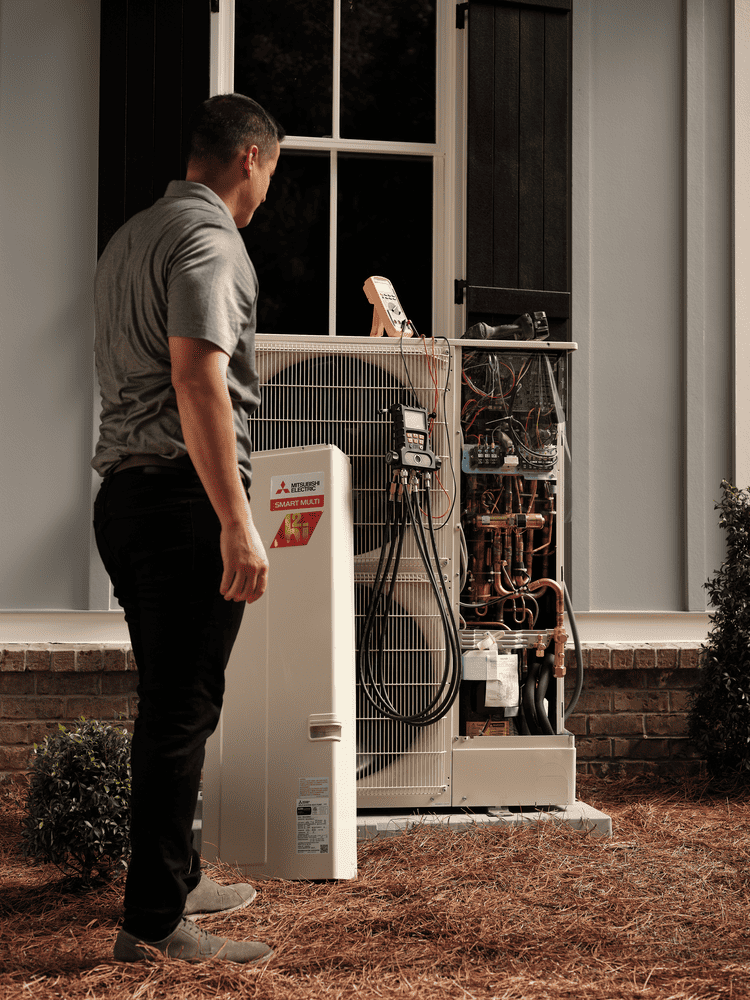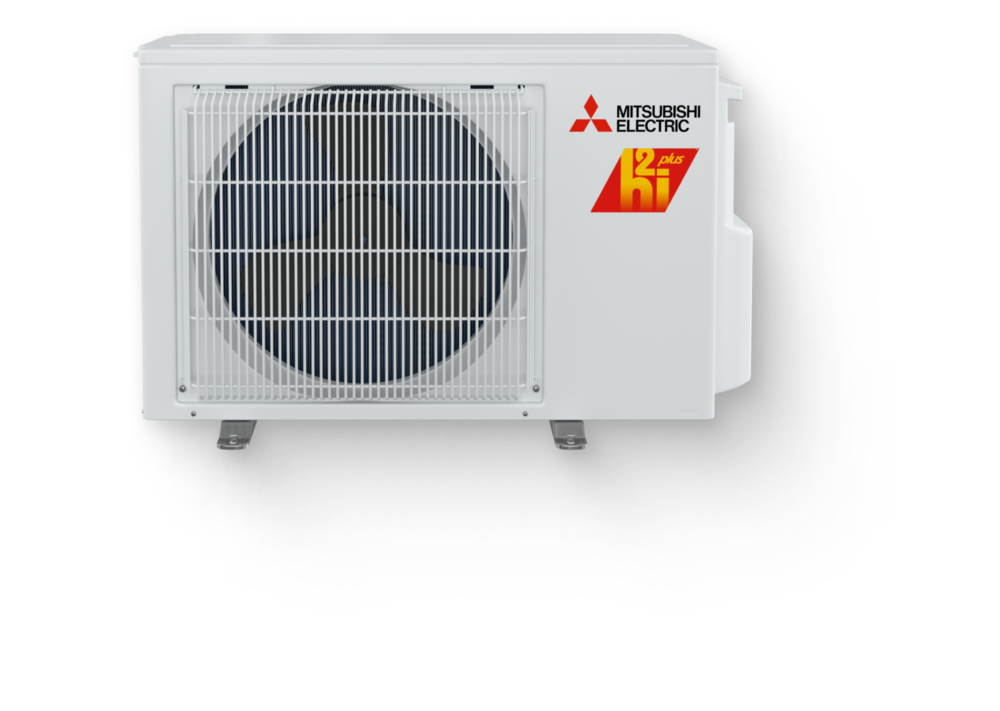Troubleshooting Your Mitsubishi Mini Split: A Comprehensive Guide
Mitsubishi mini split air conditioning systems have become increasingly popular choices for heating and cooling homes and offices. Their ductless design provides quiet, energy-efficient temperature control. However, like any air conditioning unit, Mitsubishi mini splits can sometimes malfunction. When your mini split stops working properly, it’s important to troubleshoot and address any issues to restore comfort and prevent bigger problems down the road. This guide will cover the most common Mitsubishi mini split troubles and provide tips to get your system back up and running.
Table of Contents:

Troubleshooting Your Mitsubishi Mini Split
Mitsubishi mini splits may fail to turn on, cease cooling or heating, leak water, make strange noises, or display cryptic error codes.
Common Mitsubishi Mini Split Problems
Mitsubishi mini splits may fail to turn on, cease cooling or heating, leak water, make strange noises, or display cryptic error codes. The following are the most frequent issues.
Unit Not Turning On
- If your indoor or outdoor mini split unit won’t power on at all, potential causes include:
- Power outage
- Tripped circuit breaker
- Faulty remote control
- Thermostat incorrectly configured
- Loose wiring connections
Check these areas before calling a technician. Ensure the main power supply is on, reset any tripped breakers, check remote batteries, and double check temperature and mode settings on the thermostat.
INTERESTED IN RELIABLE SERVICE
SCHEDULE SERVICE CALL TODAY!
Mitsubishi award-winning Diamond Contractor
Serving New York and New Jersey

Unit Not Heating or Cooling Properly
There are several possible reasons why your mini split may not reach the desired temperature:
- *Dirty air filter restricting airflow
- *Incorrect thermostat configuration
- *Refrigerant leak
- *Outdoor unit air intake or vents blocked
- *Fan failure
The easiest solutions are cleaning the filter, adjusting thermostat settings, and clearing any blocked vents or intakes. You may need a technician to recharge refrigerant or replace a failed fan if those solutions don’t work.
Leaking Water
It’s normal for some condensation drainage from a mini split. But excessive water leakage signals a problem like:
- Full drain pan – Needs periodic cleaning
- Clogged condensate drain line
- Refrigerant overcharge allowing excess condensation
- Leaking plumbing connections
Check the drain pan under the unit and drain line for obstructions. Removing debris and gunk should allow proper drainage. If the issue persists, contact an HVAC technician to check refrigerant charge and fittings.

Loud Noise From Unit
Some sound from the indoor and outdoor units is totally normal. But loud new sounds can mean:
- Debris or ice buildup hitting fan
- Compressor failure
- Refrigerant flow issues
- Unbalanced or loose fan or mount
Have a technician inspect your mini split if new loud noises arise. An unbalanced fan hitting housing or failing compressor can worsen and damage the system if left unchecked. Inspecting the initial trouble areas in your Mitsubishi mini split can reveal issues you can remedy yourself. But for persisting or complex problems, engage a certified HVAC technician for repair assistance.
Troubleshooting Tips
Follow these general troubleshooting steps for a Mitsubishi mini split malfunction:
- Consult the owner’s/installation manual for model-specific guidelines
- Check error code meanings on the handheld remote or indoor unit LED
- Cycle power off and back on to reset
- Thoroughly clean filters, vents, pans, lines, and fins of debris
- Ensure unit is level, intake vents unblocked, and thermostat properly set
- Contact certified Mitsubishi service partner if issues continue
Resetting power, cleaning the system, and checking configurations can temporarily revive a mini split or determine if professional maintenance is necessary. The manual also outlines step-by-step troubleshooting instructions for the exact model.
INTERESTED IN RELIABLE SERVICE
SCHEDULE SERVICE CALL TODAY!
Mitsubishi award-winning Diamond Contractor
Serving New York and New Jersey

Warning Signs Indicating Technician Needed
While some problems have quick DIY fixes, other issues require specialized HVAC technician skills and tools. Contact service immediately if you notice:
- Burning or metallic smell – Electrical issue
- Visible sparking – Dangerous electrical faults
- Compressor not turning on – Risk of refrigerant leak/pressure loss
- Frozen indoor unit coils – Low refrigerant/restriction
- Water leaks not from condensation – Fittings/piping failure
- Error code cannot be cleared – Automated system fault
Safely turn the mini split off and call certified Mitsubishi service if you observe these warning signs. Continued operation risks equipment damage or hazardous conditions.
Preventative Maintenance
Like all air conditioning systems, Mitsubishi mini splits need periodic inspection and maintenance to minimize problems, maximize efficiency and comfort, and extend operational lifespan.
Routine maintenance tasks include:
- Clean air filter monthly
- Clear debris/leaves from outdoor unit/fins
- Confirm unobstructed airflow indoors/out
- Check all wiring connections
- Test functionality of remote
- Log runtime hours
Annual professional maintenance includes:
- Thorough cleanings
- Comprehensive function tests
- Refrigerant charge and pressure check
- Inspect/repair any leaks
- Calibrate thermostat and sensors
- Update firmware if available
- Check compressor amp draw for issues
- Review error code history
Following the above schedules helps sustain your Mitsubishi mini split for over a decade of reliable, efficient service. Check your model's manual for the maintenance timeline recommendations.
When to Call in The Experts
While many minor problems can be addressed with routine troubleshooting and maintenance, don’t hesitate to engage professional Mitsubishi mini split support for any complex repairs or assistance interpreting complicated issues. Certified Mitsubishi installers and service technicians have the expertise and diagnostic tools to swiftly restore cooling comfort and heating. They can also help you learn how to best maintain your system at optimum performance.
Conclusion – Troubleshoot Issues Early
Troubleshooting problems and regular maintenance are vital for keeping Mitsubishi mini splits running smoothly. Diagnosing issues early prevents costly repairs later and sustains energy efficiency. Simple DIY efforts like cleaning filters or removing obstructions can solve many common cooling and heating malfunctions in ductless systems.
But at the first signs of drain leaks, strange sounds, electrical issues, or blinking error codes - engage professional support. The Mitsubishi service network has the parts, knowledge and diagnostic technology to resolve tricky mini split malfunctions. Troubleshooting your issues alongside an expert technician also provides valuable maintenance lessons for minimizing future problems. With some vigilance about your mini split’s status and prompt troubleshooting when problems arise, your Mitsubishi ductless system can deliver many years of whisper-quiet, energy-efficient indoor comfort. Don’t hesitate to leverage professional assistance whenever complex repairs or interpretations are needed.



